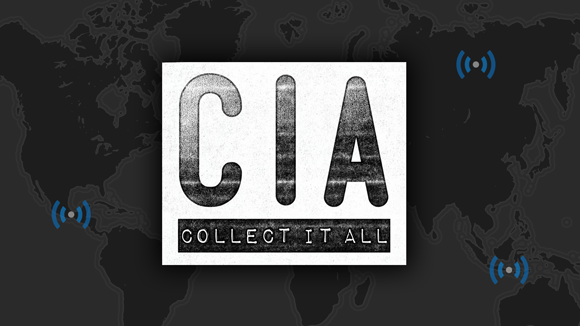from the self-righteous-but-not-self-sufficient dept
Is it good for governments to supplement their normal crowdfunding efforts (taxes) with something more voluntary? That's the question posed by this great Legally Weird post, which provides a number of examples of city governments asking citizens to dig a little deeper to pay for government things.
Whether or not they can is an unanswered legal question. No one appears to have challenged any of these efforts on policy grounds. Considering giving is completely voluntary, the efforts are usually harmless and underfunded. Whether or not they should engage in crowdfunding is a much more interesting question, although most answers will probably boil down to whether or not the person answering agrees with what the funds are being raised for.
Government crowdfunding efforts have been initiated to pay for park trash receptacles, to remove a Confederate statue, and to supply a public defenders' office with a much-needed cash infusion. Then there's the case that the Legally Weird post leads with.
The city of Bloomfield, New Mexico is asking citizens to pay its legal fees for it. The crowdfunding effort created by Brad Ellsworth, the city's finance officer, hopes to raise enough money to finish paying the $700,000 the city owes to the ACLU.
When we ask rhetorically why governments pursue highly-dubious litigation using public funds, this is the sort of thing we're talking about. The city came out on the losing end of a lawsuit filed by the ACLU on behalf of two Bloomfield Wiccans who disagreed with the city's placement of a Ten Commandments monument on the city hall lawn.
The city argued the separation of church and state was intact because the monument was paid for and created by private citizens. It even contained a disclaimer to that effect on the monument itself. The case eventually made its way to the Tenth Circuit Appeals Court, which found in favor of the ACLU. The court said that permanent monuments erected on city property are government speech, even if they're privately-funded.
The city countered the monument wasn't permanent. It said those providing the monuments needed to re-apply for prime city hall lawn position every 10 years. The court said there was no meaningful difference between ten years and permanent when the city placed no limit on renewals. The city petitioned the US Supreme Court, but the top court saw no reason to take up the case.
Fortunately, the city's residents didn't have to pay for this litigation. The Alliance Defending Freedom provided the city with pro bono legal services, saving taxpayers a considerable amount of money. But the city lost, and it now owes $700,000 to the ACLU.
Obviously, the city never prepared for this eventuality. The city has until 2021 to pay this debt off and has decided to make its first payment of $233,000 to the ACLU this year, using city budget funds. Its crowdfunding effort asks anyone -- city residents included -- to cough up the remaining $467,000. Its GoFundMe page contains a very self-serving statement that portrays the city as a fierce First Amendment warrior, rather than a participant in a project that violated the Establishment Clause of the Constitution.
In an effort to protect and defend private citizens' First Amendment rights, the City of Bloomfield opposed the ACLU's efforts to remove a former Ten Commandments historical monument from the front lawn at City Hall. The Ten Commandments historical monument sat alongside several historical monuments, including the Declaration of Independence, Bill of Rights, and the Gettysburg Address. With overwhelming public support, the City of Bloomfield opposed the ACLU's efforts by appealing all the way to the Supreme Court of the United States. Unfortunately, the District Court ruled in favor of the ACLU and the City of Bloomfield was ordered to remove the Ten Commandments historical monument, which has since been completed. The Ten Commandments historical monument now resides on property owned by the Bloomfield First Baptist Church.
An unfortunate result of the City of Bloomfield seeking to defend its private citizens' First Amendment rights is that, because the City of Bloomfield lost the litigation, the City is required to reimburse the attorneys' fees and costs of the ACLU relating to the Ten Commandments litigation. The City owes $467,000.00 in attorneys' fees which must be paid by June 30, 2021. Given the overwhelming public support during the litigation, the City is reaching out to concerned citizens in an effort to help crowd fund the remaining balance owed in attorneys' fees. The City appreciates all of the support private citizens can offer.
To call the response "tepid" would be an insult to room-temperature tap water. More than two weeks into its campaign, the city has only managed to raise $1,775 -- 0.38% of its goal. Comments on the page suggest people aren't happy the city's attempt to stick citizens with the legal bill it racked up, especially after it apparently told residents this lawsuit wouldn't cost them a cent.
Sadly, the residents unwilling to donate to the city's crowdfunding effort will end up paying for this futile, stupid legal battle anyway. When this fails -- and it will -- the remaining balance will be paid off using tax dollars that definitely would be better spent on almost anything else.
Far too many municipalities are willing to use public funds to pursue dubious legal claims -- claims many residents likely don't support. And when they lose, that is added to the public's tab. Bloomfield's idiotic defense of Constitutional violations isn't an anomaly. The only thing that makes it stand out is its use of a crowdfunding platform to pay the legal bill. Otherwise, it's business as usual: the defense of unsupportable positions with the involuntary support of the public.
Filed Under: 1st amendment, bloomfield, civil liberties, crowdfunding, new mexico
Companies: aclu





